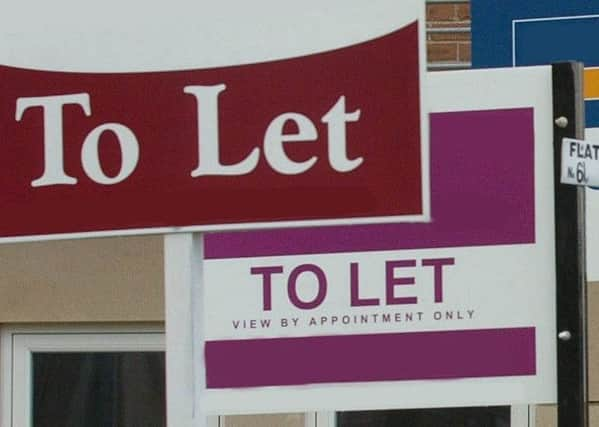Property news: Home ownership out of reach for many as cost of rents rise


The Cost of Renting Report also says future first time buyers (FTBs) can expect to spend 22 per cent more.
Compiled with the Centre for Economics and Business Research (Cebr), the report reveals the average FTB in England in 2016 will have spent 16.4 per cent of their total lifetime earnings on rent for all the years they were a tenant.
Advertisement
Hide AdAdvertisement
Hide AdThose buying a property for the first time this year in the north east will have spent £31,300 on rent – the lowest amount in England. Whereas in London, the average amount spent is more than double that, at £68,300.
The south east is the only region other than London where the total lifetime rent spent is above the English average – where the total rent expenditure equates to £55,900.
In 2015 on average people in the UK spent 22 per cent of their wages on rent, increasing to 30 per cent in London. Those living in the east enjoyed the most affordable rents due to relatively high earnings in the region, yet rent still accounted for 18.9 per cent of their disposable income.
Brits that move out of their family home at the age of 183, will typically rent for 13 years before buying their first property.
Advertisement
Hide AdAdvertisement
Hide AdThe Cost of Renting report found those leaving home and starting to rent this year, will spend an average of £64,400 before they are able to buy their first property – one fifth (22 per cent) more than current FTBs getting on the housing ladder this year will be spending.
David Cox, managing director, Association of Residential Letting Agents (ARLA), said: “The rising cost of rent in this country is a huge issue, and is preventing tenants from being able to save to buy a home. Our Cost of Renting report reveals that tenants are already spending a significant proportion of their income on rent, and therefore struggling to save any money.
“However, as house price affordability worsens and interest rates start rising, more pressure will be put on renting with weekly rent likely to rise, so home ownership will remain out of reach for many.
“Rents are becoming alarmingly unaffordable due to the lack of available housing; the North-South divide we’re currently seeing in the UK is a clear illustration of this.
Advertisement
Hide AdAdvertisement
Hide AdA fifth (21 per cent) of those renting in the UK do not expect to ever be able to afford to buy a home – with rising house prices and low wages forming a barrier against FTBs getting on the property ladder.
Still, younger generations feel optimistic, with three quarters of those aged 18-34 (75 per cent) hoping to buy in the future. This optimism wanes with age as only half (48 per cent) of 35-54 year old renters have plans to buy in the future.
Nine in ten (87 per cent) tenants feel they are being held back from being able to buy. Saving for a deposit is the biggest obstacle, with over half (51 per cent) claiming this is stopping them. A quarter (23 per cent) would not be able to afford monthly mortgage repayments and a further quarter (26 per cent) cannot afford the associated costs such as stamp duty.
Renting satisfaction
Although two fifths of UK renters (39 per cent) are quite happy renting, the majority are not. Spending income on rent rather than being able to save is a problem for two fifths of renters (38 per cent), and a quarter (26 per cent) think the government should do more for renters to help them get on the property ladder. One in ten (8 per cent) feel there are not enough family homes available to rent in the area they want to live.
Advertisement
Hide AdAdvertisement
Hide AdDavid Cox concludes: “It’s really worrying that so many renters don’t ever expect to be able to afford a home. Although housing is high on the political agenda, all we’ve seen come out of parliament recently is legislation which is set to hinder the experiences of tenants; and the sheer lack of affordable housing means many renters will never fulfil their dreams of homeownership. Despite the Chancellor’s efforts in the Budget to help the housing market, the housing budget accounts for just 0.26 per cent of public spending, lower than other key areas, such as transport which accounts for 3.6 per cent of total spending.
“As rent costs continue to rise, unfortunately more and more tenants will find themselves renting for longer as they have less ability to save. We need to take action now, before we become a nation of forever renters.”